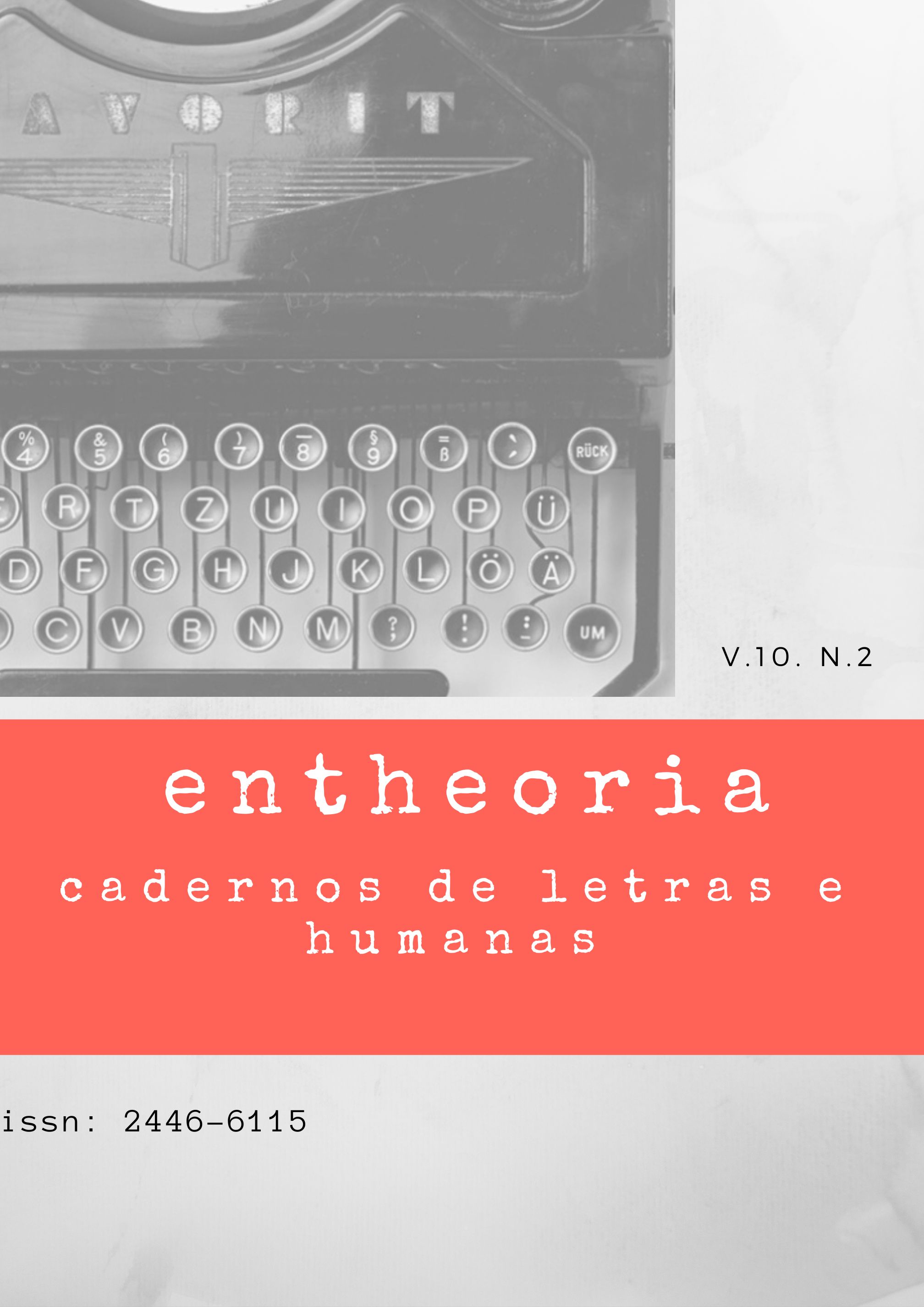JUDITH, HEIR OF MARIANA, MOTHER OF THREE MARIAS:
INHERITANCE AND ASCENDENCE IN “SATANIA” AND “UNSATIATED”
Keywords:
Insatiated, Literature of female authorship, New Portuguese letters, Review of the literary canon Portuguese, Satania.Abstract
We intend to show that the fundamental material of Novas Cartas Portuguesas – the experience of being-writing a woman in Portugal in the 20th century –, expressed literarily in its textual solutions, is not born from the perspective of the three writers of the feminist text and does not owe tribute only to Portuguese letters, but most of its themes and proposals are present in the avant-garde soap operas Satania and Insatiated by Judith Teixeira. We will present, through examples and detailed analyses, the instability that Teixeira's writing causes when confronting the Portuguese fanophalogocentrism of his time and how his novels establish a point of tension in the temporal arc that goes from Portuguese letters by Mariana Alcoforado to New Portuguese letters from Maria Velho da Costa, Maria Teresa Horta and Maria Isabel Barreno.Downloads
References
ALCOFORADO, Mariana. Cartas portuguesas. In: ANDRADE, Eugénio. Poesia e prosa (1940-1979). Vila da Maia: Casa da Moeda, 1980
AMARAL, Ana Luísa. Literatura e Mundo em "Novas Cartas Portuguesas": O Azulejo dos Tempos. In: eLyra: Revista da Rede Internacional Lyracompoetics, [S. l.], v. 1, n. 1, p. 5-24. 2013. Disponível em: https://elyra.org/index.php/elyra/article/view/14. Acesso em: 5 fev. 2023.
BARRENO, Maria Isabel; COSTA, Maria Velho da; HORTA, Maria Teresa. Novas Cartas Portuguesas. Edição anotada org. Ana Luísa Amaral. Lisboa: Dom Quixote, 2010.
COELHO, Nelly Novaes. O discurso-em-crise na literatura feminina portuguesa. In: Via Atlântica. São Paulo: v. 2, p. 120-128, jul. 1999. Disponível em: https://revistas.ufpr.br/letras/article/view/19665/12916. Acesso em 12/02/2023.
DUQUE-ESTRADA, Paulo César (org.). Às margens: a propósito de Derrida. Rio de Janeiro/ São Paulo: Ed. PUC-Rio/Loyola, 2002.
GERRY, Chris. A prosa novelesca e propagandística de de Judith Teixeira vista por seu tradutor. In: SILVA, Fabio Mario et all (Orgs.). Judith Teixeira: ensaios críticos. No centenário do modernismo. Lisboa: Edições Esgotadas, 2017. p. 145-167.
KLOBUCKA, Anna. O formato mulher: a emergência da autoria feminina na poesia portuguesa. Coimbra: Angelus Novus, 2009.
KLOBUCKA, Anna. “Considerai, irmãs minhas”: as negociações de parentesco e comunidade entre "Lettres Portugaises" e as Novas Cartas Portuguesas". In Cadernos de Literatura Comparada, vol. 2, p. 41-61. 2012. Disponível em: https://ilc-cadernos.com/index.php/cadernos/article/view/102. Acesso em: 5 fev. 2023.
SILVA, Fabio Mario da. Entre o modernismo e o feminismo. In: TEIXEIRA, Judith. Poesia e Prosa. Lisboa: Dom Quixote, 2015, p. 267-76.
VILELA, Ana Luísa. O Sexo e o nome. Notas para uma leitura das novelas de Judith Teixeira. In: SILVA, Fábio Mário et all (Orgs.). Judith Teixeira: ensaios críticos. No centenário do modernismo. Lisboa: Edições Esgotadas, 2017. p. 17-32.
TEIXEIRA, Judith. Poesia e prosa. Org. e estudos: Cláudia Pazos Alonso e Fábio Mário da Silva. Lisboa: Dom Quixote, 2015.
Downloads
Published
How to Cite
Issue
Section
License
Copyright (c) 2023 Entheoria: Cadernos de Letras e Humanas ISSN 2446-6115

This work is licensed under a Creative Commons Attribution 4.0 International License.
O(s) Autor (es), na qualidade de titular (es) do direito de autor do ensaio ou artigo submetido à publicação, de acordo com a Lei nº. 9610/98, concorda (m) em ceder os direitos de publicação à Revista Entheoria e autoriza(m) que seja divulgado gratuitamente, sem ressarcimento dos direitos autorais, por meio do Portal de Revistas Eletrônicas da UFRPE e sites associados, para fins de leitura, impressão e/ou download pela Internet, a partir da data da aceitação do artigo pelo Conselho Editorial da Revista. É vedada a submissão integral ou parcial do manuscrito a qualquer outro periódico.


























